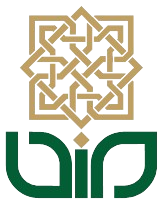Yogyakarta - The Master of Islamic Economics (MES) Study Program at the Faculty of Islamic Economics and Business in Yogyakarta recently held a successful webinar on Islamic Economics and Finance on November 7, 2020. The webinar focused on the theme “Islamic Economics in Reducing Inequality and Encouraging Inclusive and Sustainable Economic Growth” and was a part of the MES Marvelous 2020 series of events.
The webinar featured distinguished speakers in their respective fields, including Prof. Dr. Muhammad Nur Rianto Al Arif, M.Si (Professor at UIN Syarif Hidayatullah Jakarta); Ir. Adiwarman Azwar Karim, S.E., M.AB., MAEP (Academician and Practitioner of Islamic Economics); and Assoc. Prof. Sutan Emir Hidayat, Ph.D (Director, National Committee for Islamic Economic and Finance, Indonesia (KNEKS)). Each of the speakers presented the theme from different perspectives, namely from the academic, practitioner, and regulatory perspectives, with the hope that the material presented would be more diverse and easily understood by the seminar participants.
The webinar commenced with an opening address by Dr. Ahmad Salehuddin, S.Th.I., M.A, Vice Dean III of the Faculty of Islamic Economics and Business at UIN Sunan Kalijaga Yogyakarta. Dr. Salehuddin stated that “Islamic economics currently holds a strategic position in achieving the SDGs. This is evidenced by the fact that the Islamic economic system can still survive amidst the current global recession.”
Furthermore, the Head of the Master of Islamic Economics Program at the Faculty of Islamic Economics and Business UIN Sunan Kalijaga Yogyakarta delivered a speech and shared the outcomes of the Congress of Master of Islamic Economics Students from across Indonesia, which took place on November 6, 2020.
In alignment with the Vice Dean III of the Faculty of Islamic Economics and Business UIN Sunan Kalijaga, Ir. Adiwarman A Karim, S.E., M.AB., MAEP stated that “Islamic economics can achieve sustainability when its two crucial components, namely economics and Sharia, operate in harmony and complement each other, thereby creating the desired harmonization.”
